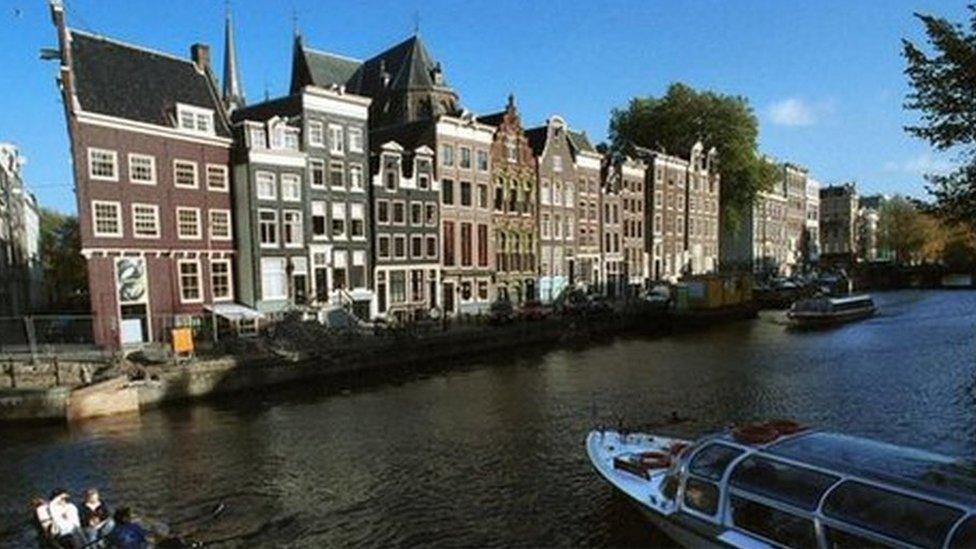Cardiff Uni anti-crime model rolled out in Australia
- Published

A Cardiff academic's strategy for cutting violent crime using data from accident and emergency departments will be rolled out in Australia.
Prof Jonathan Shepherd's award-winning "Cardiff Model" for identifying violence hotspots has won a £740,000 ($1.4m Australian dollar) grant.
The model will be used in Melbourne, Sydney and Canberra.
Prof Shepherd, of Cardiff University, said it aimed to cut "the harm violence inflicts on citizens and communities".
In 2008, he was awarded the Stockholm Prize for Criminology for the model - since used in the Netherlands, South Africa and the United States.
The model sees anonymous intelligence gathered from hospital A&E departments and shared with the police, public health bodies and local authorities.

Amsterdam has also used Prof Jonathan Shepherd's approach to tackle crime
It was trialled in the Welsh capital between 2002 and 2007, with Cardiff University finding a "significant and enduring reduction in serious violence" compared to 14 other cities.
An evaluation published in the British Medical Journal in 2011 suggested it helped toward a 32% drop in aggravated assaults and a 42% fall in hospital admissions in Cardiff.
'Intelligent steps'
Prof Shepherd said: "The goal of this approach is to provide basic information that complements police records so that law enforcement and alcohol licensing can take appropriate and intelligent steps to reduce the harm violence inflicts on citizens and communities."
He will team up with researchers from Deakin University, in Victoria, Australia.
The scheme will be rolled out in the three Australian cities over a five-year period, with funding from Australia's National Health and Medical Research Council.
- Published11 December 2012

- Published18 April 2012

- Published16 October 2015

- Published15 October 2015
